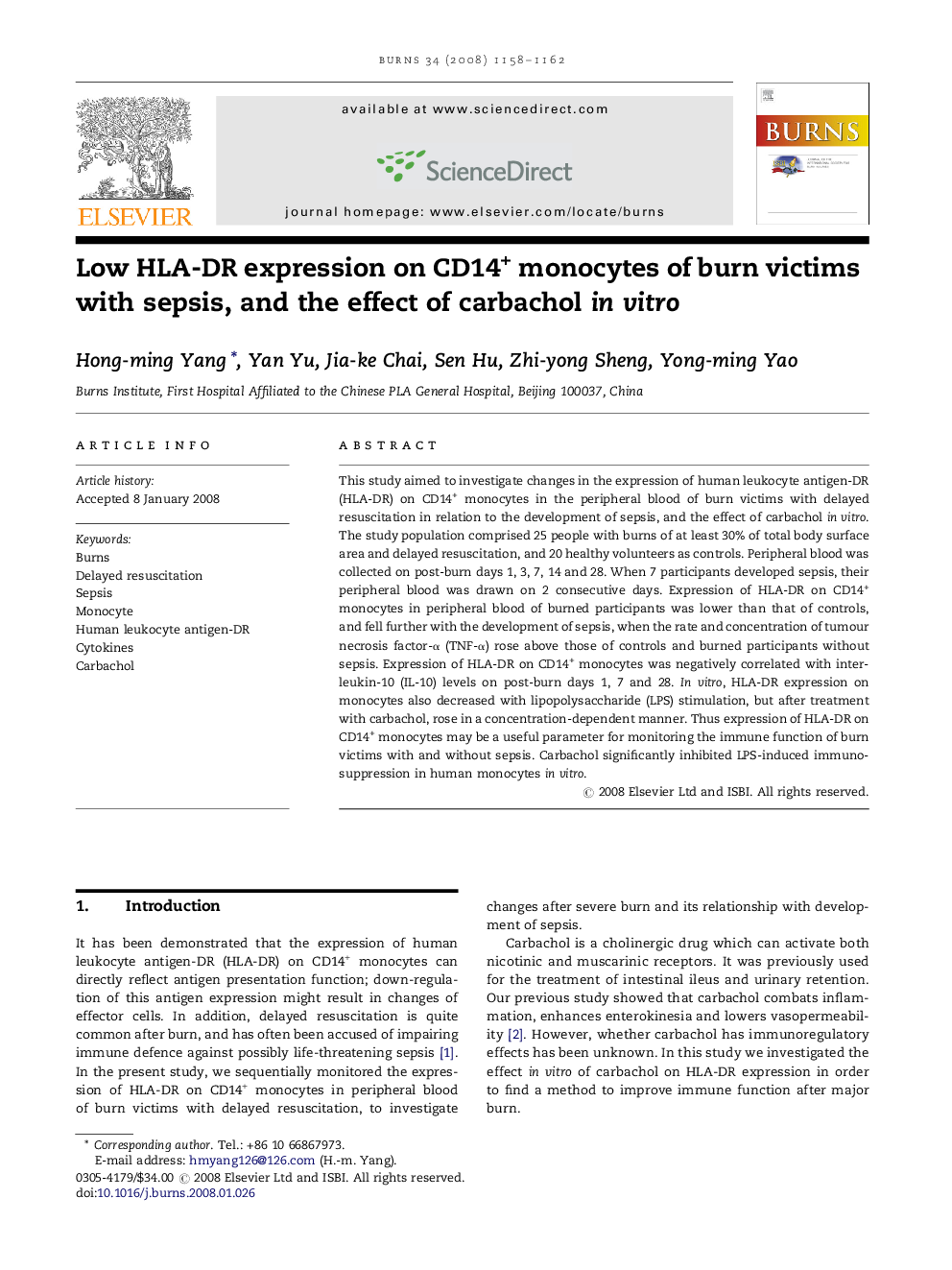| Article ID | Journal | Published Year | Pages | File Type |
|---|---|---|---|---|
| 3105728 | Burns | 2008 | 5 Pages |
This study aimed to investigate changes in the expression of human leukocyte antigen-DR (HLA-DR) on CD14+ monocytes in the peripheral blood of burn victims with delayed resuscitation in relation to the development of sepsis, and the effect of carbachol in vitro. The study population comprised 25 people with burns of at least 30% of total body surface area and delayed resuscitation, and 20 healthy volunteers as controls. Peripheral blood was collected on post-burn days 1, 3, 7, 14 and 28. When 7 participants developed sepsis, their peripheral blood was drawn on 2 consecutive days. Expression of HLA-DR on CD14+ monocytes in peripheral blood of burned participants was lower than that of controls, and fell further with the development of sepsis, when the rate and concentration of tumour necrosis factor-α (TNF-α) rose above those of controls and burned participants without sepsis. Expression of HLA-DR on CD14+ monocytes was negatively correlated with interleukin-10 (IL-10) levels on post-burn days 1, 7 and 28. In vitro, HLA-DR expression on monocytes also decreased with lipopolysaccharide (LPS) stimulation, but after treatment with carbachol, rose in a concentration-dependent manner. Thus expression of HLA-DR on CD14+ monocytes may be a useful parameter for monitoring the immune function of burn victims with and without sepsis. Carbachol significantly inhibited LPS-induced immunosuppression in human monocytes in vitro.
